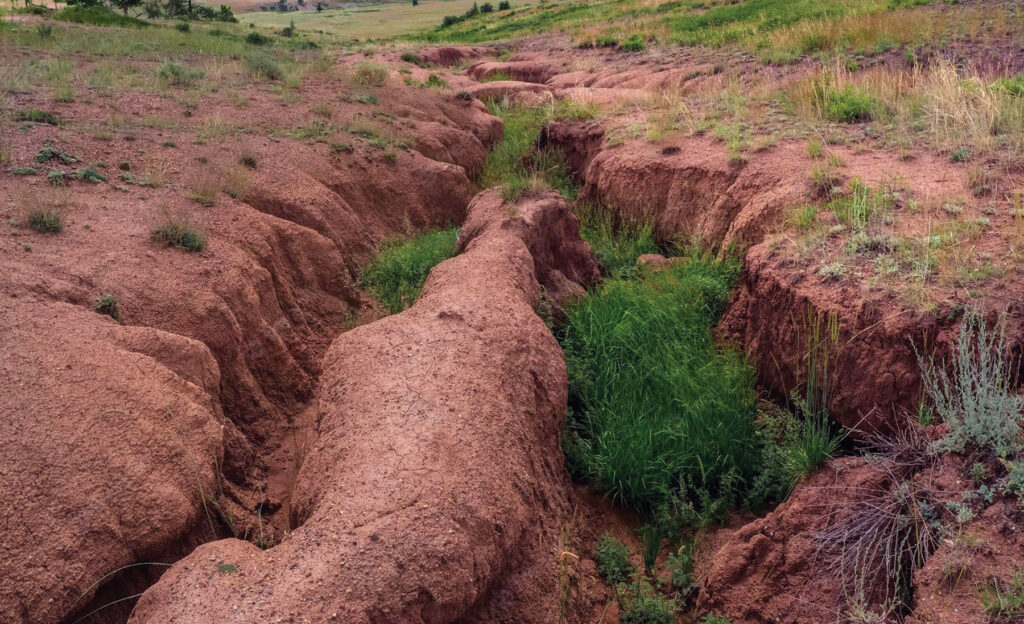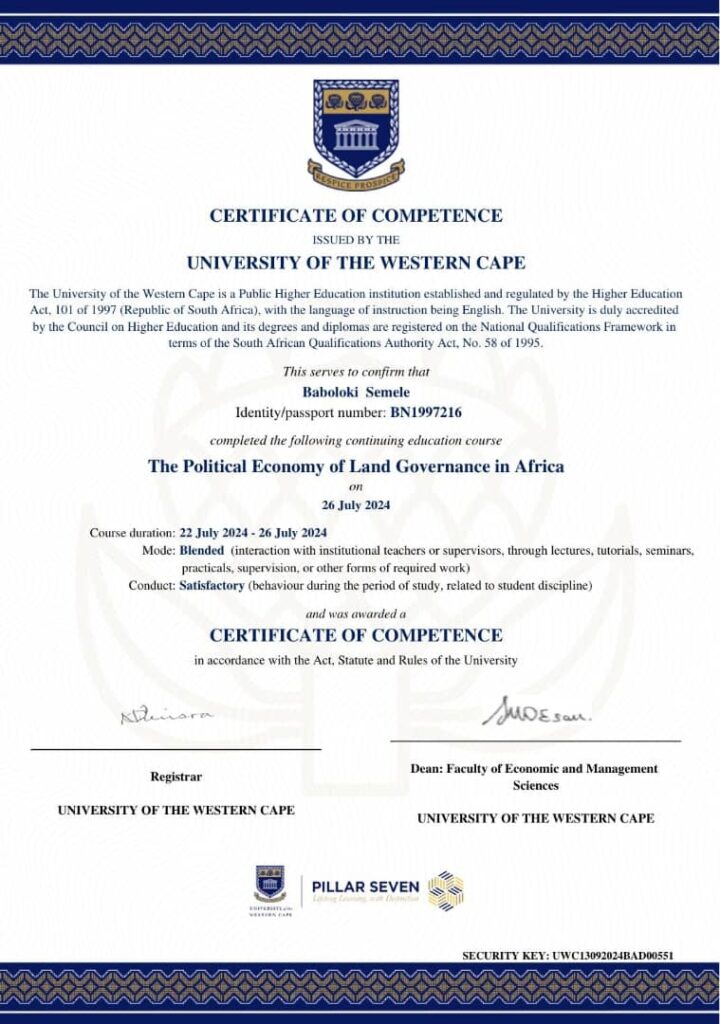Land Restoration in Botswana – A Vision for the Future

Title: Reviving Botswana’s Land: A Collective Effort for Restoration and Sustainability
By Baboloki Semele
Introduction: Botswana, a land of vast deserts and unparalleled wildlife, is facing an urgent and growing crisis: land degradation. From the arid stretches of the Kalahari Desert to the lush Okavango Delta, Botswana’s natural landscapes are under threat. Overgrazing, deforestation, and unpredictable climate conditions are diminishing the land’s ability to sustain life. As agricultural productivity falls, rural poverty rises, and biodiversity disappears. But amid these challenges, a beacon of hope shines. Several dynamic initiatives are working tirelessly to restore the land and create a sustainable future for the country’s people and ecosystems.

The Problem: Land degradation in Botswana is a dire issue, with desertification now affecting more than 80% of the country’s land area. Overgrazing, poor land management, and the increasing intensity of droughts due to climate change are robbing the land of its fertility, making it harder for communities to farm or graze livestock. This has led to food insecurity in rural areas, while the loss of vegetation and wildlife is threatening the region’s delicate ecological balance. It is clear: urgent action is needed to halt this downward spiral.
A Solution: The Botswana Land Restoration Initiative One of the most promising solutions to this crisis is the Botswana Land Restoration Initiative—a government-backed program that is rehabilitating degraded lands, promoting sustainable agriculture, and fostering community involvement. The initiative tackles the root causes of land degradation by engaging local communities in sustainable land management practices and advocating for responsible resource use.
Through an array of projects, from tree planting to sustainable farming techniques, the initiative is already making remarkable strides in restoring the land across Botswana. With the support of international organizations, local farmers are receiving training in soil conservation, water management, and agroforestry—practices that not only restore the land but also enhance agricultural productivity.
Key Projects and Their Impact:
- Tree Planting and Forest Restoration: One of the cornerstones of this initiative is tree planting, especially the introduction of drought-resistant species like the Baobab and Mopane trees. These trees are invaluable in preventing soil erosion, providing shade, and supporting local wildlife. In addition, forest restoration projects are underway to restore habitats and increase biodiversity, safeguarding the natural environment for future generations.
- Sustainable Grazing and Agriculture: The program promotes rotational grazing techniques, alongside the planting of cover crops, to reduce soil compaction and improve soil fertility. These practices help mitigate the dangers of overgrazing and reduce the pressure on the land. Furthermore, agroforestry techniques are being introduced to diversify food sources and reduce dependence on monoculture farming.
- Empowering Youth and Women: Central to the success of this initiative is the active involvement of women and youth, who are often the primary stewards of the land. As the founder and trustee of Youth for Gender Equality Foundation, I have seen firsthand how vital it is to empower these groups in land restoration efforts. Workshops and training programs are being held to teach sustainable practices, and local communities are encouraged to share their knowledge. By empowering women and youth, we are not only restoring the land but also building resilience for the future.
Scaling Up: The Way Forward While the Botswana Land Restoration Initiative has made great strides, there is still much to be done. Scaling up these efforts is crucial to addressing the widespread issue of land degradation. To expand the impact, the initiative plans to:
- Increase education and awareness campaigns, particularly in rural communities where the need for sustainable practices is most critical.
- Seek more partnerships with international donors and organizations to secure additional funding for large-scale restoration projects.
- Foster innovation in land restoration technologies, such as using drones to monitor vegetation growth and assess soil health.
How You Can Get Involved: Land restoration in Botswana is a collective effort, and everyone can play a part. Here’s how you can get involved:
- Support Local Initiatives: Volunteer or donate to organizations that are actively working on land restoration projects in Botswana and beyond.
- Adopt Sustainable Practices: Whether you are a farmer, a business owner, or a consumer, adopting sustainable practices in agriculture, waste reduction, and eco-friendly business practices helps drive land restoration forward.
- Advocate for Change: Spread awareness about Botswana’s land restoration efforts. Share these stories within your community to inspire others to take action and advocate for the protection of our environment.
Conclusion: Botswana’s land restoration efforts are not just about reversing land degradation—they’re about fostering a sustainable future for everyone. By empowering communities, especially women and youth, promoting responsible land management, and collaborating across sectors, Botswana is showing the world that restoration is possible, and it’s critical to our future.

As a recent graduate of the NELGA Short Course on the Political Economy of Land Governance in Africa, I can say with confidence that the future of land governance and restoration in Botswana—and in Africa—is in the hands of empowered communities. Let’s unite to restore the land, protect our resources, and build a more sustainable world for all.
This blog post is designed to raise awareness about Botswana’s ongoing land restoration efforts while highlighting the critical role of youth and women in this movement. By focusing on the challenges, the solutions, and the opportunities for scaling these initiatives, we hope to inspire action and underscore the importance of sustainable land management in tackling land degradation across the globe.





